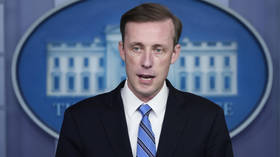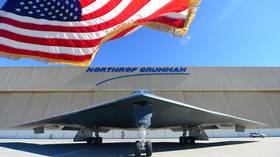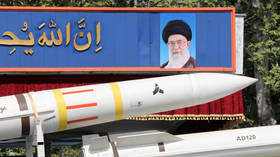US proposes multilateral nuclear deal

The US is willing to engage in multilateral arms control efforts with the UK, France, Russia and China, National Security Advisor Jake Sullivan announced on Friday.
“We have stated our willingness to engage in bilateral arms control discussions with Russia and with China, without preconditions,” Sullivan told the annual meeting of the Arms Control Association, adding that Washington is eager to “compartmentalize” the atomic issue from other relations with Moscow and Beijing.
However, the US also seeks to engage the “P5” – the nuclear-armed permanent members of the UN Security Council – in multilateral arrangements. For example, Sullivan added, “formalizing a missile launch notification regime across the P5 is a straightforward measure that is simply common sense.”
Sullivan called this “a small step that would help reduce the risk of misperception and miscalculation in times of crisis,” but could also build momentum towards further measures, such as “establishing crisis communications channels among the P5 capitals,” and committing to transparency in nuclear matters, among other things.
President Joe Biden’s top aide aired the White House’s frustration that China has not bothered to engage in any arms control talks with the US, and seems to be on track to have 1,500 nuclear warheads by 2035.
The US is willing to abide by the core limits set by the New START treaty “as long as Russia does,” Sullivan told the ACA, and discuss nuclear weapons separately from other issues.
Parallel to all these efforts, the US is modernizing its own “nuclear triad” in order to be able to negotiate “from a position of strength,” Sullivan said, adding that Washington seeks to “help set the norms and shore up the values of the new nuclear era.”
On Thursday, Washington said it would stop notifying Russia on the status and location of its nuclear missiles, revoke the diplomatic privileges and visas of Russian inspectors, and no longer provide missile launch telemetry. The State Department called it “lawful countermeasures in response to the Russian Federation’s ongoing violation” of the treaty.
Moscow had suspended the inspection regime last August, citing US sanctions over the Ukraine conflict that interfered with Russian personnel doing their job. In February, President Vladimir Putin suspended Moscow’s participation in New START altogether, saying it made no sense to observe the treaty with a party committed to Russia’s “strategic defeat.”













